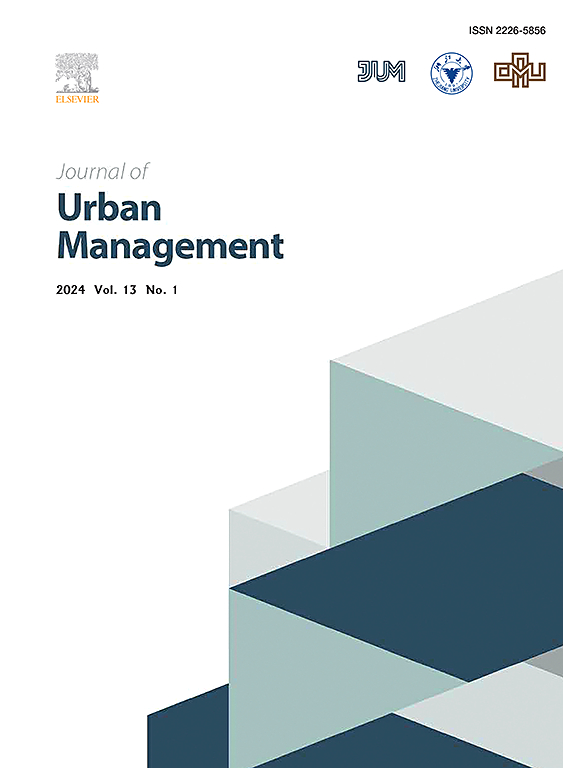公共价值视角下中国城市旧社区商业化更新中的社会矛盾及其解决路径
IF 5
2区 社会学
Q1 URBAN STUDIES
引用次数: 0
摘要
构建可持续的社区更新模式,有效化解社会矛盾,是当代中国城市治理与社会稳定的关键问题。本研究聚焦于成都工村社区在商业化驱动下的更新所引发的社会矛盾。本文采用案例研究、结构化访谈和参与式观察相结合的方法,探讨了社区更新过程中的公共价值冲突及其解决途径。研究表明,公共价值的形成是一个多种价值体系相互作用的动态过程,社区商业化过程中出现了各种公共价值冲突。要解决这些社会矛盾,必须充分考虑不同群体和背景的不同利益,以及所涉及的不同公共价值观。通过推动民主化和制度化,可以将这些冲突中产生的不同公共价值转化为广泛认可的价值共识。本研究以公共价值理论为基础,提出一种超越传统方法的社会冲突解决模型。它不仅考察了社区更新过程中涉及社会冲突的关键利益相关者及其之间价值冲突的表现,而且强调了通过积极对话和谈判整合和转化不同公共价值观的重要性。这一过程涉及多个利益相关者,遵循从公共价值聚集到谈判,最终到价值重塑的轨迹。该模型为解决社区更新中的社会冲突提供了新的治理框架和方法支持,为公共价值观的整合与和解提供了创新的见解。本文章由计算机程序翻译,如有差异,请以英文原文为准。
Social conflicts and their resolution paths in the commercialized renewal of old urban communities in China under the perspective of public value
Constructing a sustainable community renewal model and effectively resolving social conflicts are key issues in urban governance and social stability in contemporary China. This study focuses on the social conflicts arising from the commercialization-driven renewal of the Workers' Village community in Chengdu. Using a combination of case study methods, structured interviews, and participant observation, we explore the public value conflicts and their resolution pathways in the process of community renewal. The study reveals that the formation of public values is a dynamic process characterized by the interplay of multiple value systems, with various public value conflicts emerging in the commercialization of communities. To resolve these social conflicts, it is essential to fully consider the diverse interests of different groups and contexts, as well as the varying public values at stake. By promoting democratization and institutionalization, the different public values that arise from these conflicts can be transformed into a widely recognized value consensus. Grounded in public value theory, this study proposes a social conflict resolution model that transcends traditional approaches. It not only examines the key stakeholders involved in social conflicts during community renewal and the manifestations of value conflicts among them, but also emphasizes the importance of integrating and transforming divergent public values through active dialogue and negotiation. This process, involving multiple stakeholders, follows a trajectory from the aggregation of public values to negotiation and ultimately to value reshaping. The proposed model provides a new governance framework and methodological support for addressing social conflicts in community renewal, offering innovative insights into the integration and reconciliation of public values.
求助全文
通过发布文献求助,成功后即可免费获取论文全文。
去求助
来源期刊

Journal of Urban Management
URBAN STUDIES-
CiteScore
9.50
自引率
4.90%
发文量
45
审稿时长
65 days
期刊介绍:
Journal of Urban Management (JUM) is the Official Journal of Zhejiang University and the Chinese Association of Urban Management, an international, peer-reviewed open access journal covering planning, administering, regulating, and governing urban complexity.
JUM has its two-fold aims set to integrate the studies across fields in urban planning and management, as well as to provide a more holistic perspective on problem solving.
1) Explore innovative management skills for taming thorny problems that arise with global urbanization
2) Provide a platform to deal with urban affairs whose solutions must be looked at from an interdisciplinary perspective.
 求助内容:
求助内容: 应助结果提醒方式:
应助结果提醒方式:


